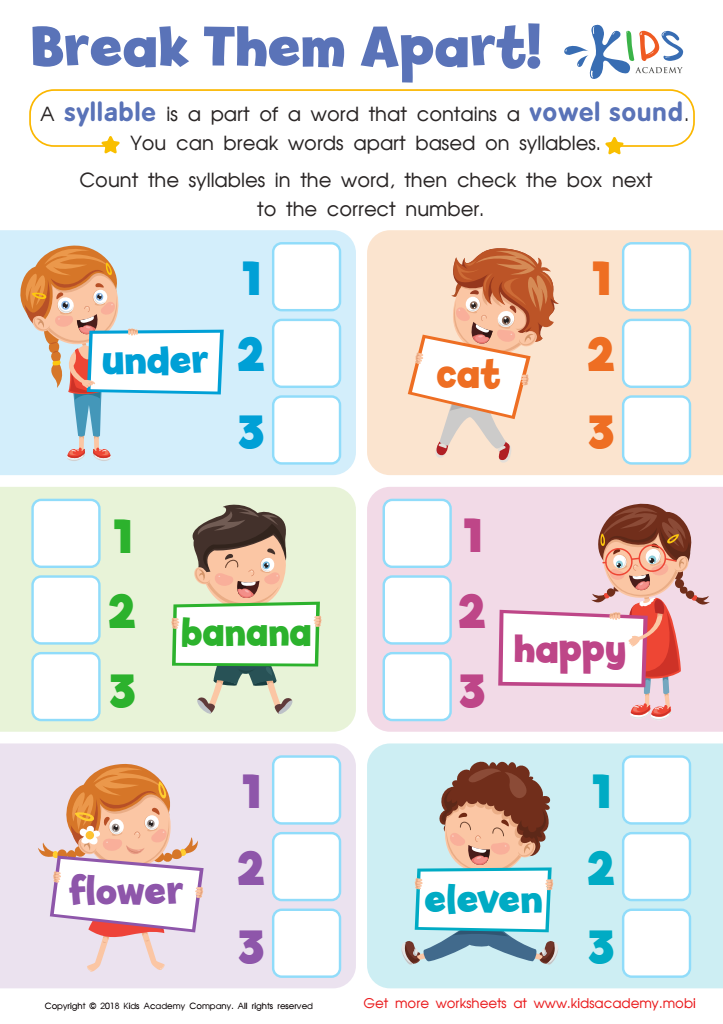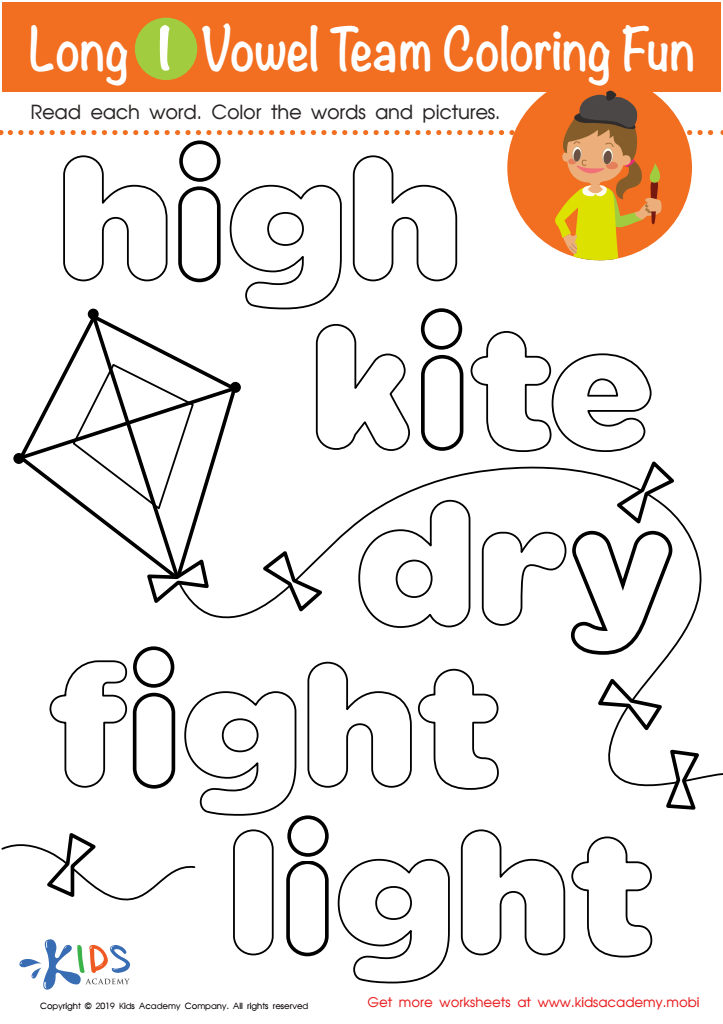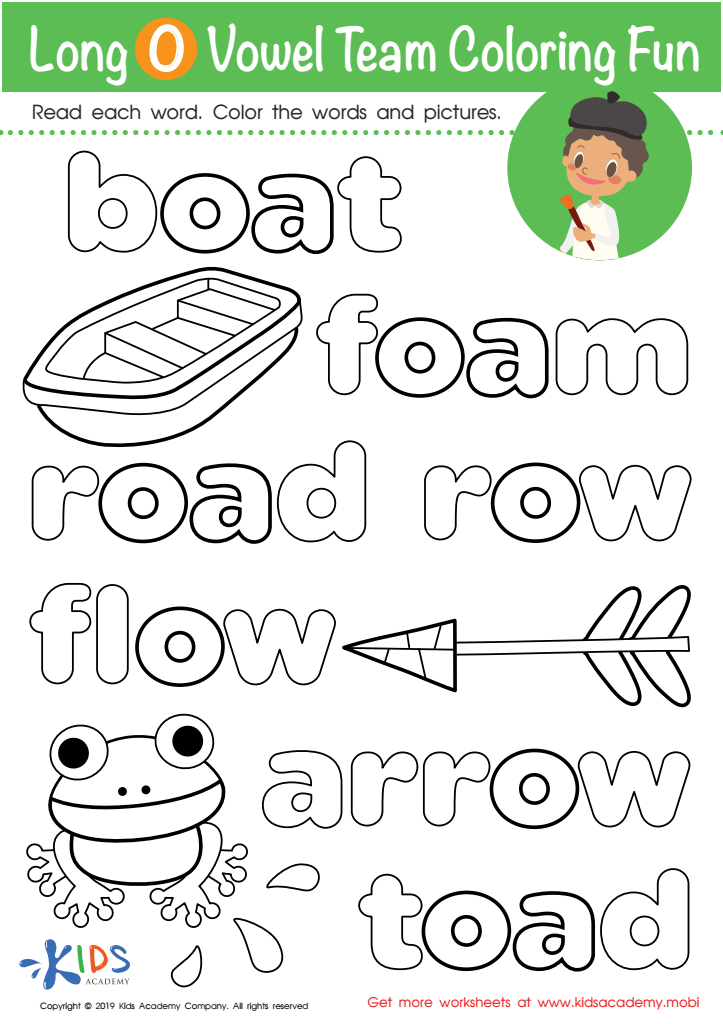Phonics Skills Normal Elementary Phonics Worksheets
4 filtered results
-
From - To
Discover our "Phonics Skills Normal Elementary Phonics Worksheets," designed to enhance young learners' reading abilities through engaging and effective activities. These worksheets focus on fundamental phonics skills, including letter recognition, sound blending, and word building, providing a solid foundation for literacy. Tailored for early elementary students, our interactive exercises promote essential phonetic understanding while making learning enjoyable. Whether used in the classroom or at home, these worksheets are perfect for reinforcing phonics knowledge and developing confidence in reading. Dive into our comprehensive resources today and support your child's journey towards literacy success with fun and challenging phonics practice!


Reading: Break Them Apart Worksheet


Long I Vowel Team Coloring Worksheet


Long and Short E Worksheet


Long O Vowel Team Coloring Worksheet
Phonics skills are fundamental in the early stages of literacy development, crucial for both parents and teachers to prioritize. Phonics refers to the relationship between letters and their corresponding sounds, providing the foundation for young learners to decode words independently. Mastery of phonics enables children to read more fluently, which in turn enhances comprehension skills and fosters a love for reading.
Teachers need to focus on phonics as it directly affects the overall academic performance of their students. A strong understanding of phonics can lead to improved reading levels, impacting success across all subjects. Moreover, effective phonics instruction helps identify struggling readers early on, allowing for timely interventions.
Parents, too, play a critical role by reinforcing phonics at home. Engaging children in phonics activities can help create a supportive learning environment and instill confidence in their reading abilities. By focusing on phonics, parents empower their children to take ownership of their learning.
Ultimately, prioritizing phonics equips children with essential literacy skills vital for lifelong learning, communication, and critical thinking, making it essential for both educators and parents to be invested in their phonics development.

 Assign to My Students
Assign to My Students















